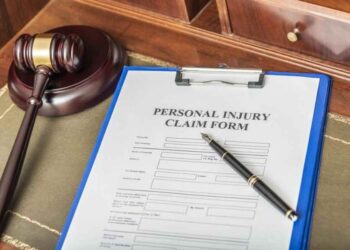Motorcycle accidents can happen in the blink of an eye, leaving behind a trail of physical pain, emotional distress, and financial strain. The days and weeks following such an event can feel chaotic and uncertain, especially when dealing with injuries, insurance companies, or the reality of missing work. Knowing how to move forward is rarely clear in the moment. Taking practical steps early on can ease the long-term burden, from seeking medical care to navigating the legal system. Having a guide for what comes next can offer direction in a time when everything else feels disoriented.
Hiring Legal Representation After an Accident
When the dust settles and the shock begins to fade, the question of legal action often surfaces. In many cases, hiring a motorcycle injury lawyer can significantly affect the outcome of your recovery process. These legal professionals bring clarity to what can be a tangled web of paperwork, medical records, witness statements, and insurance negotiations. With a focused understanding of motorcycle-related cases, they can identify where fault may lie, what damages are recoverable, and how best to pursue compensation.
Legal timelines tend to be strict, and delays in filing a claim or preserving evidence may lead to missed opportunities. Insurance companies often attempt to settle quickly and for less than a case may be worth. Without guidance, it’s easy to accept an offer that doesn’t begin to cover the full extent of medical expenses, lost wages, or emotional trauma. A seasoned attorney becomes not just an advocate, but a much-needed buffer between you and the pressures of insurance adjusters looking to close a file fast.
Receiving Immediate Medical Attention
Injuries from motorcycle accidents aren’t always apparent right away. The adrenaline that follows trauma can mask pain or disorientation, which is why getting checked out by a medical professional should be a top priority. From concussions and internal injuries to fractures and soft tissue damage, some conditions may worsen if left untreated. Even minor accidents can have lingering effects that show up days later.
Medical documentation created immediately after the crash is crucial. It connects your injuries directly to the event, which will be significant if you pursue a legal claim. Skipping this step or delaying treatment may later be used to argue that your injuries aren’t as serious as claimed or that they stemmed from another incident. Establishing a treatment plan early, whether it involves surgery, physical therapy, or medication, sets the foundation for both your recovery and any claim you make.
Preserving Evidence from the Scene
Details fade fast after an accident. If you’re physically able, taking photographs of the crash scene, the vehicles involved, your injuries, road conditions, and traffic signs can be extremely useful. These images often reveal things that written reports may overlook, like skid marks, debris, or weather conditions.
Beyond visual evidence, try to gather contact information from any witnesses. Their accounts can help paint a fuller picture of what happened, especially if there’s disagreement about fault. If police arrive at the scene, request a copy of their report when it’s available. It may include diagrams, observations, or citations that support your version of events. Every bit of evidence collected strengthens your ability to show how and why the accident occurred.
Understanding the Full Scope of Damages
When evaluating damages, it’s easy to focus only on medical bills. But motorcycle accidents often touch every part of a person’s life. Pain, anxiety, loss of mobility, and missed work are just the start. Some injuries can require long-term care or alter your ability to earn income going forward. Others may lead to permanent disability, which carries emotional and financial consequences for years.
There are also property damages to factor in—repairs to your motorcycle or the cost of replacing it entirely. Personal items like phones, gear, or protective clothing may be damaged as well. Pain and suffering, which speak to the emotional and physical toll taken by the accident, are less tangible but no less real. A thorough assessment includes not just the visible costs but the often-overlooked ones that emerge long after the accident itself.
Dealing with Insurance Companies
Insurance adjusters have one goal in mind: settling claims quickly and cheaply. Their job is to protect the company’s bottom line, which doesn’t always align with your best interests. It’s not unusual for accident victims to feel pressured into accepting low offers or signing away rights without realizing the implications.
Before signing anything, it’s wise to consult someone with legal knowledge. The language used in insurance documents can be confusing, full of conditions and waivers that are hard to decipher. Providing a recorded statement may seem harmless, but it can be used to undermine your claim later. When a lawyer handles communications, it reduces stress and protects you from making a mistake under pressure.
The period after a motorcycle accident brings a complex mix of challenges. With careful steps, it’s possible not just to move on, but to move forward.










